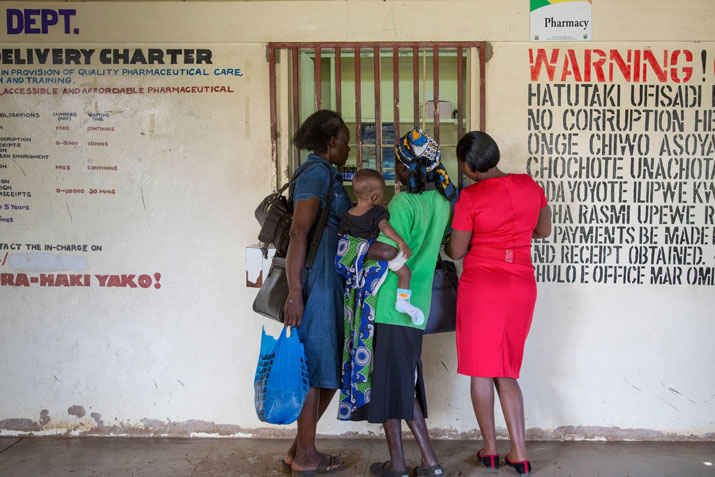An Ounce of (After-Sex) Prevention: At the Family Planning Summit, Let’s Talk about Emergency Contraception
An Ounce of (After-Sex) Prevention: At the Family Planning Summit, Let’s Talk about Emergency Contraception
by Elizabeth Westley
This blog was originally posted on the International Consortium for Emergency Contraception website

To meet the global Family Planning 2020 goals, a full range of family planning methods must be available, including user-controlled, short-acting methods. The Guttmacher Institute’s analysis, Adding it Up, estimates that 214 million women of reproductive age in developing regions want to avoid pregnancy but are not using a modern contraceptive method. Half of unmarried women with an unmet need for family planning report infrequent sex as the reason that they do not use a family planning method. A quarter of married women not using contraception fall into the same category. Not feeling themselves at high levels of risk, these women may wish to avoid the appointments and waiting times, dependence on providers, side effects, discomforts, and other commitments that long-acting contraceptive methods sometimes entail. Other women may not be using modern contraception because they are unaware of their options or are faced with inaccessibility due to distance barriers, poor health infrastructures, stock outs, or high prices. As well, many women are located in humanitarian and fragile settings where contraceptive access can be challenging. For many women and girls not currently using a long-acting contraceptive method, a simple, discreet, user-controlled, low-commitment, one-time “on demand” form of contraception that can be accessed easily and quickly is a critically important option. This method already exists: emergency contraception.
Emergency contraceptive pills (ECPs) can bridge this gap for millions of women. This form of contraception can be accessed across a range of settings, without a prescription, in pharmacies and in humanitarian settings in UN emergency reproductive health kits. ECPs can be taken by women without needing to negotiate with a partner and without her taking time off work to go to a clinic. Women are willing to pay for ECPs out of pocket, which will be increasingly important in a shifting donor landscape. Women seem to like ECPs: the latest data from PMA2020 shows that emergency contraception accounts for a quarter of the contraceptive use by unmarried women aged 15-24 in Ghana, more than any other method. It also makes up 10% of contraceptive use in younger married women. In Kenya, ECPs are the second most used method by younger unmarried women, after condoms.
Promising and important as this method is, we don’t know enough about it. Demographic and Health Surveys (DHS) don’t consistently include a question about use of emergency contraception. This means that many countries are not considering, and counting, the use of emergency contraception when calculating their Contraceptive Prevalence Rates (CPR). The data that could inform better decision-making for ECPs in programming, procurement, quantification, counselling, training, provision, monitoring and evaluation is very limited or simply unavailable. Knowledge gaps still exist regarding ECP access for survivors of sexual assault, and in humanitarian settings, settings characterized by disruption to supply chains and of increased vulnerabilities.
We know that emergency contraception is the only method that can be used after sexual intercourse has already occurred. It is the only recourse when a method fails, no method was used, or when sex was coerced. It is critically important for survivors of sexual assault and for women and girls in humanitarian and fragile settings. We know that most women in developing countries are largely still unaware of emergency contraception—and without knowledge, they cannot realize their right to make a fully informed contraceptive choice.
As the development and humanitarian communities convene at the Family Planning Summit next week, we must ensure the agenda prioritizes a diversified and complete range of contraception in response to women’s needs. Emergency contraception must be included in data collection as well as programming investments, particularly in efforts to raise awareness of contraceptive methods. A greater commitment to emergency contraception and other forms of user-controlled contraception is fully supportive of the spirit and the goals of the FP2020 movement, providing women and girls with options to decide—freely and for themselves—whether, when, and how many children they want to have.
Elizabeth Westley is Director of the International Consortium for Emergency Contraception, hosted by MSH.